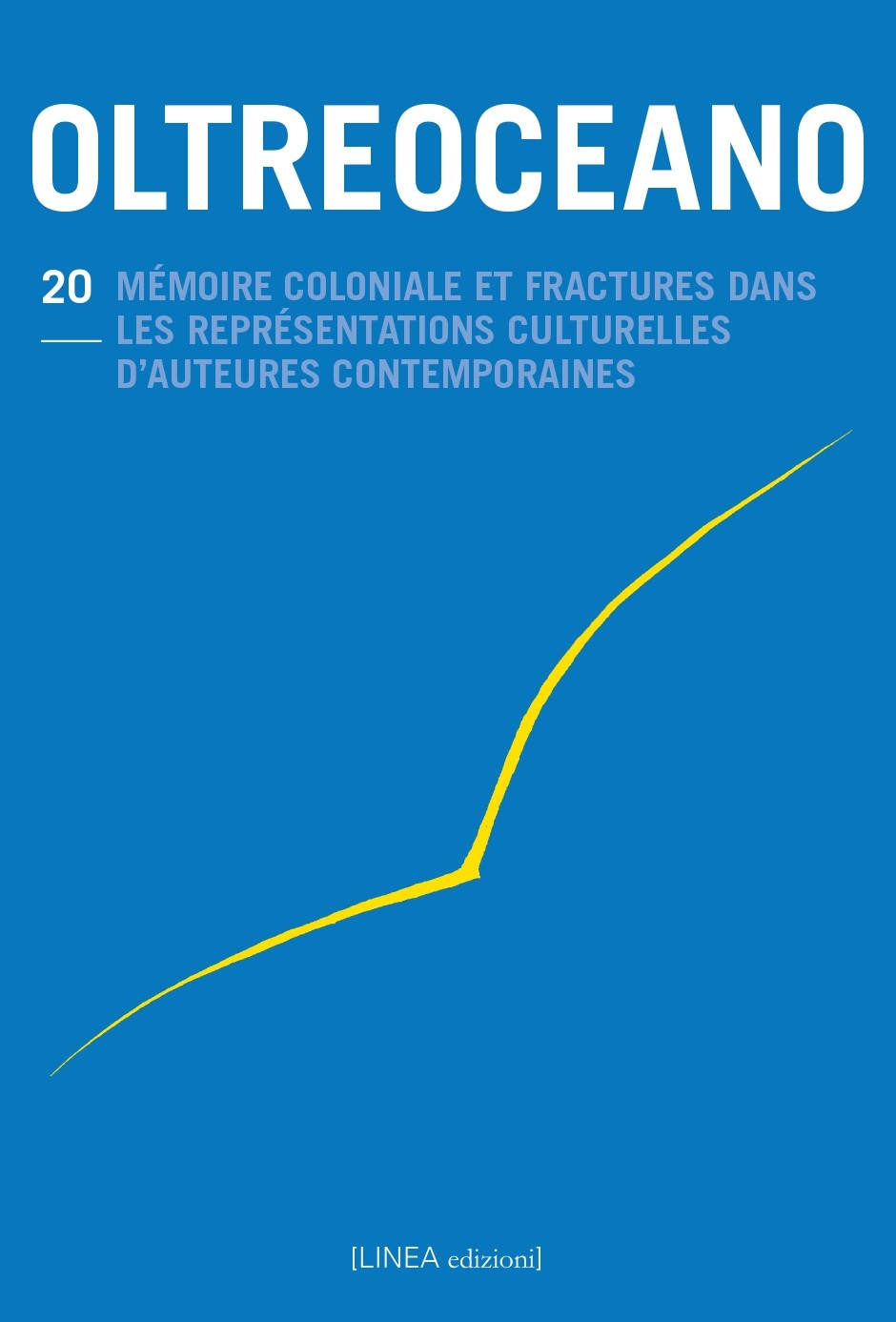«Je m'insinue, visiteuse importune, dans le vestibule de ce proche passé»: le devoir de la mémoire d'Assia Djebar
DOI:
https://doi.org/10.53154/Oltreoceano53Keywords:
Assia Djebar, écriture-voix, femmes, colonialisme, ut pictura poesisAbstract
Notre lecture parcourt quelques fragments de ce qu'on peut appeler lʼ«écriture-voix» d’Assia Djebar à travers les portraits et les paroles au féminin de la nouvelle Femmes d'Alger dans leur appartement tirée du recueil homonyme paru en 1980: des jeunes femmes marquées par leur participation à la lutte pour l'Indépendance y traduisent par leur langage sensuel et tragique la mémoire d'une expérience coloniale inscrite dans leur corps.
«Je m'insinue, visiteuse importune, dans le vestibule de ce proche passé»: Assia Djebar's Duty of Memory
Our reading explores a few fragments of what can be called Assia Djebar's writing-voice through the feminine portraits and words of the story Femmes d'Alger dans leur appartement from the homonymous collection (1980): young women, marked by their participation in the struggle for independence, translate through their sensual and tragic language the memory of a colonial experience inscribed in their bodies.
«Je m'insinue, visiteuse importune, dans le vestibule de ce proche passé»: il dovere della memoria
La lettura approfondisce e analizza alcuni frammenti di quella che potremmo definire la "scrittura-voce" di Assia Djebar, attraverso i ritratti e le parole femminili della novella Femmes d'Alger dans leur appartement, tratta dall'omonima raccolta pubblicata nel 1980: giovani donne segnate dalla partecipazione alla lotta per l'indipendenza traducono la memoria di un'esperienza coloniale inscritta nei loro corpi attraverso il loro linguaggio sensuale e tragico.
Downloads
References
Achour, Ch. Ch. (1999): Noȗn, Algériennes dans l'écriture. Paris: Séguier.
Ali-Benali, Z. (2018): Corps oubliés, corps insurgés, le surgissement des corps dans les révolutions arabes. Chimères, 92, pp. 237-246.
Chirac, J. (2005, 17 juin): Une œuvre généreuse et humaniste. Communiqué à la suite de l'élection de l'écrivaine Assia Djebar à l'Académie française. Tiré de http://assiadjebar.canalblog.com/archives/2008/07/19/9980123.html.
Derrida, J. (2007, 21 novembre): L'anti_Macias: Moi, L'Algérien. Le Matin d'Algérie. Tiré de https://www.lematindz.net/news/373-lanti-macias-moi-lalgerien-de-jacques-derrida.html.
Djebar, A. (1985): L'Amour, la fantasia. Paris: Albin Michel.
Djebar, A. (1999): Ces voix qui m'assiègent. Paris: Albin Michel.
Djebar (1999): Le Roman maghrébin francophone: entre les langues et les cultures: quarante ans d'un parcours: Assia Djebar 1957-1997, Thèse de doctorat, Université Paul Valéry-Montpellier III.
Djebar, A. (2002): Femmes d'Alger dans leur appartement. Paris: Albin Michel.
Gauvin, L. (2010): Les femmes-récits ou les déléguées à la parole. In W. Asholt, M. Calle-Gruber & D. Combe (Éds), Assia Djebar. Littérature et transmission (pp. 55-66). Paris: Presses Sorbonne Nouvelle.
Leopold, S. (2010): Figures d'un impossible retour. L'inaccessible Algérie chez Assia Djebar. In W. Asholt, M. Calle-Gruber & D. Combe (Éds), Assia Djebar. Littérature et transmission (pp. 141-156). Paris: Presses Sorbonne Nouvelle.
Mokeddem, M. (2005): Mes hommes. Paris: Grasset.
Downloads
Published
How to Cite
Issue
Section
License

This work is licensed under a Creative Commons Attribution-NonCommercial-ShareAlike 4.0 International License.
The authors undertake to comply with the following conditions, which are considered accepted at the time of submission of their contributions.
The sending of a text implies that it is unpublished and not submitted to be published elsewhere.
1. If accepted, the author shall confer on the publisher the right to publish and distribute it both in paper form and in the online electronic edition. The published articles will be downloadable and made available in open access.
2. Provided that it correctly indicates that the first publication took place in the journal Oltreoceano. Rivista sulle migrazioni the author has the right to: a) reproduce the article in separate extracts or collected in a volume; b) publish the article on their personal website or teaching site provided that these sites are of a non-commercial nature; c) deposit the article in online archives of a non-commercial nature, linked to the institution they belong to or as part of projects for the non-commercial dissemination and open access of scientific works.
The use of contributions by third parties, for commercial or otherwise unauthorized purposes, is not allowed. The publisher declines all responsibility for the unauthorized use of the material published in the journal.












